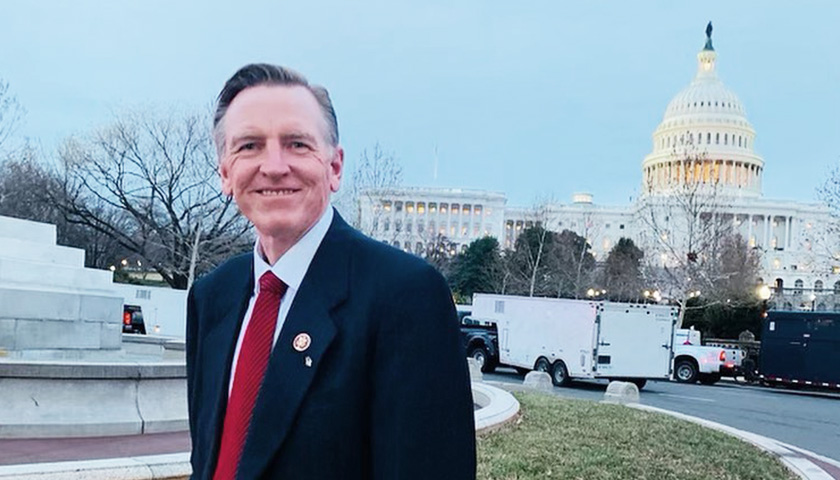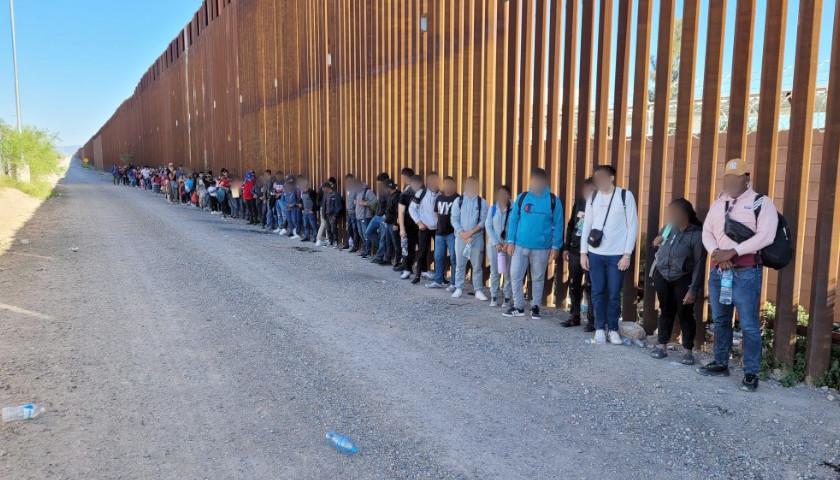Arizona Representative Paul Gosar (R-AZ-04) recently shared that his effort to end the COVID-19 national emergency is gaining continuous support from fellow congressional members.
“Americans should never again be forced to endure government-imposed lockdowns, mandatory vaccinations and masking and school closings,” Gosar said in an update. “After more than two years, momentum is building and Congress is getting closer to finally moving beyond the overbearing, reckless, and irresponsible COVID-19 national emergency.”
Support for Gosar’s Discharge Petition No. 12 has been flowing in. He currently has 111 signatures from other Congress members, and if he can get 218, the petition will force a vote on his joint resolution, which seeks to end the national emergency.
The Arizona Sun Times reached out to Gosar for more information on his petition but did not get a response by publishing time.
In March 2020, former President Donald Trump declared a national emergency regarding COVID-19. Then, two years later, President Joe Biden (D) extended the national emergency beyond its original expiration date. Biden said he made the extension because COVID-19 “continues to cause significant risk to the public health and safety of the nation.”
Gosar said the extension is “total silliness, given the pandemic is over and peoples’ lives have returned to normal.”
Under the National Emergencies Act (NEA) of 1975, the president gets access to several powers during an emergency. The Brennan Center for Justice (BCJ) outlined 136 statutory powers under the NEA that cover almost every subject area, including military power, land use, public health, federal pay schedules, and communications. While most powers are reasonable or mundane, the BCJ called some “particularly alarming,” such as the power to test chemical or biological weapons on human subjects, shutting down or taking over radio stations, and freezing assets or blocking any financial transactions a foreign power has an interest in, even if the assets belong to American citizens.
Aside from expiring two years after being enacted within the NEA, there are two ways for a national emergency to end. If the president issues a proclamation terminating the emergency or a joint resolution ending the emergency is passed into law.
The latter is how Gosar attempts to end Biden’s extended emergency with House Joint Resolution 46 (H.J.Res.46). A joint resolution is essentially the same as a bill. It must pass both chambers and receive the president’s signature to become law unless the resolution proposes an amendment to the Constitution, where approval from two-thirds in both chambers and three-fourths of the states will bypass the need for the president’s signature.
However, Gosar said, “House Speaker Pelosi has thwarted every attempt I’ve made to terminate the COVID-19 national emergency by changing the rules to prevent this from happening, thus handicapping Congress checking the powers of the executive branch.”
Yet, Gosar still has another way to get his resolution voted on, a discharge petition, a Congressional tool that can force a vote on previously blocked legislation if it has significant support. Gosar created Discharge Petition No. 12 in March this year and still needs 107 signatures to force a vote.
According to The New York Times, Arizona’s daily average of new reported COVID-19 cases is slightly up in July, averaging 2,591 as of Monday. This average is up from April but still does not reach heights previously seen in the pandemic, the sharpest spike occurring on January 24th, with a daily average of over 20,000 new cases.
– – –
Neil Jones is a reporter for The Arizona Sun Times and The Star News Network. Follow Neil on Twitter. Email tips to [email protected].
Photo “Paul Gosar” by Rep. Paul Gosar.





